 Cerebral palsy results from injury to or abnormal development of the brain, with various problems in movement, posture, and other behavioral functions.
Cerebral palsy results from injury to or abnormal development of the brain, with various problems in movement, posture, and other behavioral functions.
Researchers at the Graduate School of Education and Ewha Music Rehabilitation Center, in Seoul, Korea, studied the effects of Therapeutic Instrument Music Performance (TIMP) for fine motor exercises in adults with cerebral palsy.
Continue reading Benefits of keyboard playing in people with cerebral palsy →
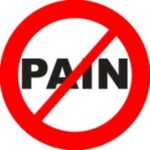 Researchers at Abbott Northwestern Hospital, in Chicago evaluated the effectiveness of an inpatient integrative medicine consult service for pain management. Continue reading Results of nonpharmacological approaches to treating pain →
Researchers at Abbott Northwestern Hospital, in Chicago evaluated the effectiveness of an inpatient integrative medicine consult service for pain management. Continue reading Results of nonpharmacological approaches to treating pain →
 There’s lots of interest, but nobody ever reviewed the evidence before this.
There’s lots of interest, but nobody ever reviewed the evidence before this.
Researchers at the College of the Holy Cross, in Worcester, Massachusetts, accepted the challenge. Continue reading Review of art therapies in dementia care →
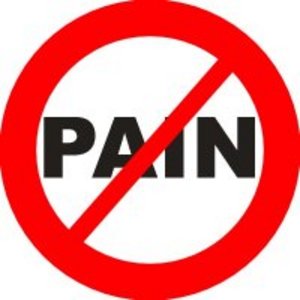 Treating chronic pain is challenging. Often, the reason for the pain isn’t clear and may require combinations of treatments before finding relief, if then.
Treating chronic pain is challenging. Often, the reason for the pain isn’t clear and may require combinations of treatments before finding relief, if then.
Researchers at the Centre Mémoire de Ressources et de Recherches, in Paris, France assessed the usefulness of their music intervention to manage patients with chronic pain. Continue reading Music to manage chronic pain →
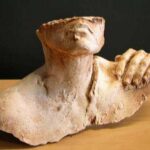 Apathy is prevalent among patients with Alzheimer’s disease and is associated with greater morbidity and worse outcomes.
Apathy is prevalent among patients with Alzheimer’s disease and is associated with greater morbidity and worse outcomes.
Researchers in Spain report that the music+art combination reduced apathy in patients with mild or moderate dementia. Continue reading Music plus art therapy for dementia-related apathy →
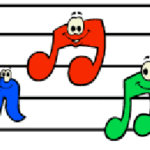 Therapeutic music is music with integrated RHS frequency of 60 beats/min.
Therapeutic music is music with integrated RHS frequency of 60 beats/min.
During the annual meeting of the American Society of Clinical Oncology, researchers from Germany studied whether therapeutic music might lead to more correct positioning and the need for fewer verification films. Continue reading Benefits of therapeutic music during radiotherapy →
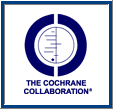 This Cochrane review examined the effects of music on anxiety and physiological responses in mechanically ventilated patients. Continue reading Does music benefit patients on a respirator? →
This Cochrane review examined the effects of music on anxiety and physiological responses in mechanically ventilated patients. Continue reading Does music benefit patients on a respirator? →
 They are at risk for respiratory infections due to excessive mucus in their airways. Airway clearance is therefore an important part of cystic fibrosis management.
They are at risk for respiratory infections due to excessive mucus in their airways. Airway clearance is therefore an important part of cystic fibrosis management.
This Cochrane review analyzed the evidence. Continue reading CAM Archive: Singing by people with cystic fibrosis? →
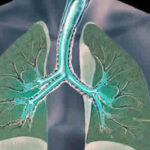 Dyspnea (difficulty breathing) is a cardinal symptom of chronic obstructive pulmonary disease (COPD). Its severity and magnitude increase as the disease progresses, leading to significant disability and a negative effect on quality of life.
Dyspnea (difficulty breathing) is a cardinal symptom of chronic obstructive pulmonary disease (COPD). Its severity and magnitude increase as the disease progresses, leading to significant disability and a negative effect on quality of life.
Here are the Canadian Thoracic Society clinical practice guidelines, with emphasis on CAM. Continue reading Limits of CAM: Dyspnea in patients with COPD →
 Organ transplant recipients experience high levels of anxiety, pain, and nausea.
Organ transplant recipients experience high levels of anxiety, pain, and nausea.
Researchers at the University of Minnesota, conducted the first study on the effects of music therapy on solid organ transplant patients. Continue reading First study of music therapy in organ transplant patients →
 Having cancer may result in emotional, physical, and social suffering. Music interventions have been used to alleviate symptoms and treatment side effects in cancer patients.
Having cancer may result in emotional, physical, and social suffering. Music interventions have been used to alleviate symptoms and treatment side effects in cancer patients.
The authors of this Cochrane review report the response to music among cancer patients. Continue reading Benefits of music therapy for cancer patients →
 Researchers at Kaohsiung Medical University, in Taiwan reviewed the evidence related to music’s effect on people with different mental illnesses. Continue reading Sumarizing the mental health implications of music therapy →
Researchers at Kaohsiung Medical University, in Taiwan reviewed the evidence related to music’s effect on people with different mental illnesses. Continue reading Sumarizing the mental health implications of music therapy →
 Researchers at Meir Medical Center, in Kfar Saba, Israel, studied the response to live harp music therapy and kangaroo care in the neonatal intensive care unit. Continue reading Music therapy for preterm infants and mothers →
Researchers at Meir Medical Center, in Kfar Saba, Israel, studied the response to live harp music therapy and kangaroo care in the neonatal intensive care unit. Continue reading Music therapy for preterm infants and mothers →
 It might be useful for some patients, say researchers at the University of Sydney, in Australia.
It might be useful for some patients, say researchers at the University of Sydney, in Australia.
But which ones? Continue reading Music therapy during an acute psychotic episode →
 Researchers at Holland Bloorview Kids Rehabilitation Hospital, Toronto, in Ontario, reviewed the evidence. Continue reading Reviewing the value of music in pediatric healthcare →
Researchers at Holland Bloorview Kids Rehabilitation Hospital, Toronto, in Ontario, reviewed the evidence. Continue reading Reviewing the value of music in pediatric healthcare →
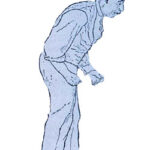 Medical treatments of Parkinson’s disease are intended reduce motor symptoms, but many patients still report a deterioration of their daily lives.
Medical treatments of Parkinson’s disease are intended reduce motor symptoms, but many patients still report a deterioration of their daily lives.
Researchers at IRCCS Neuromed, in Pozzilli, Italy hypothesized that participation in theater might reduce clinical disability and improve quality of life. Continue reading Theater to improve quality of life in Parkinson’s disease →
 Researchers at Taipei Medical University, in Taiwan, explored the effectiveness of group music sessions to manage agitation in elderly persons with dementia. Continue reading Group music therapy for agitation in dementia →
Researchers at Taipei Medical University, in Taiwan, explored the effectiveness of group music sessions to manage agitation in elderly persons with dementia. Continue reading Group music therapy for agitation in dementia →
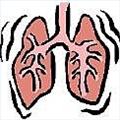 Bradypnea (slow breathing) was studied by researchers at the University of Florence, in Italy. Continue reading Lowering blood pressure with music-guided slow breathing →
Bradypnea (slow breathing) was studied by researchers at the University of Florence, in Italy. Continue reading Lowering blood pressure with music-guided slow breathing →
 During labor, women experience intense, stressful, and steady pain.
During labor, women experience intense, stressful, and steady pain.
Researchers at Ilam University of Medical Sciences, in Iran compared 2 nonpharmacologic treatment options. Continue reading Massage vs music therapy to relieve labor pain →
 Falls occur mainly while walking or performing concurrent tasks.
Falls occur mainly while walking or performing concurrent tasks.
Researcher in Switzerland studied whether a music-based multitask exercise program (Dalcroze eurhythmics) improves gait and balance and reduces fall risk in elderly individuals. Continue reading Dalcroze eurhythmics reduces falls in the elderly →
Complementary and Alternative Medicine: Fair, Balanced, and to the Point
 Cerebral palsy results from injury to or abnormal development of the brain, with various problems in movement, posture, and other behavioral functions.
Cerebral palsy results from injury to or abnormal development of the brain, with various problems in movement, posture, and other behavioral functions.









